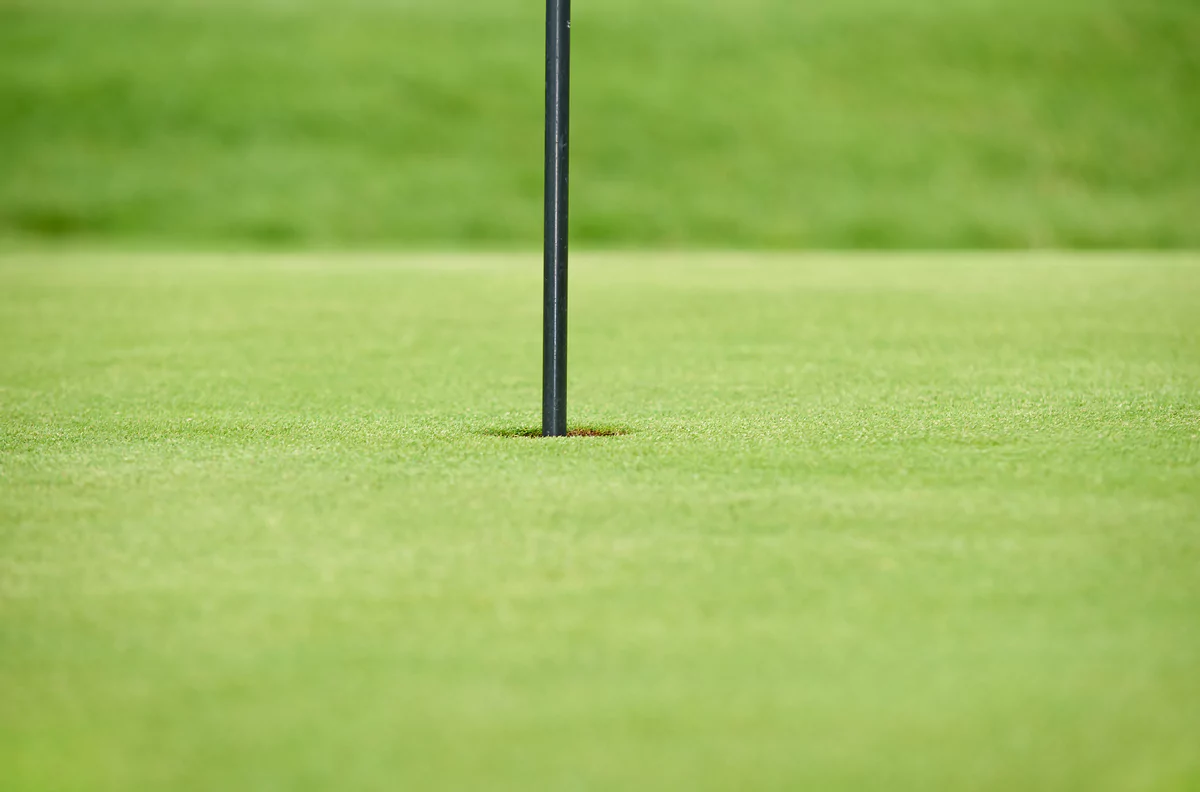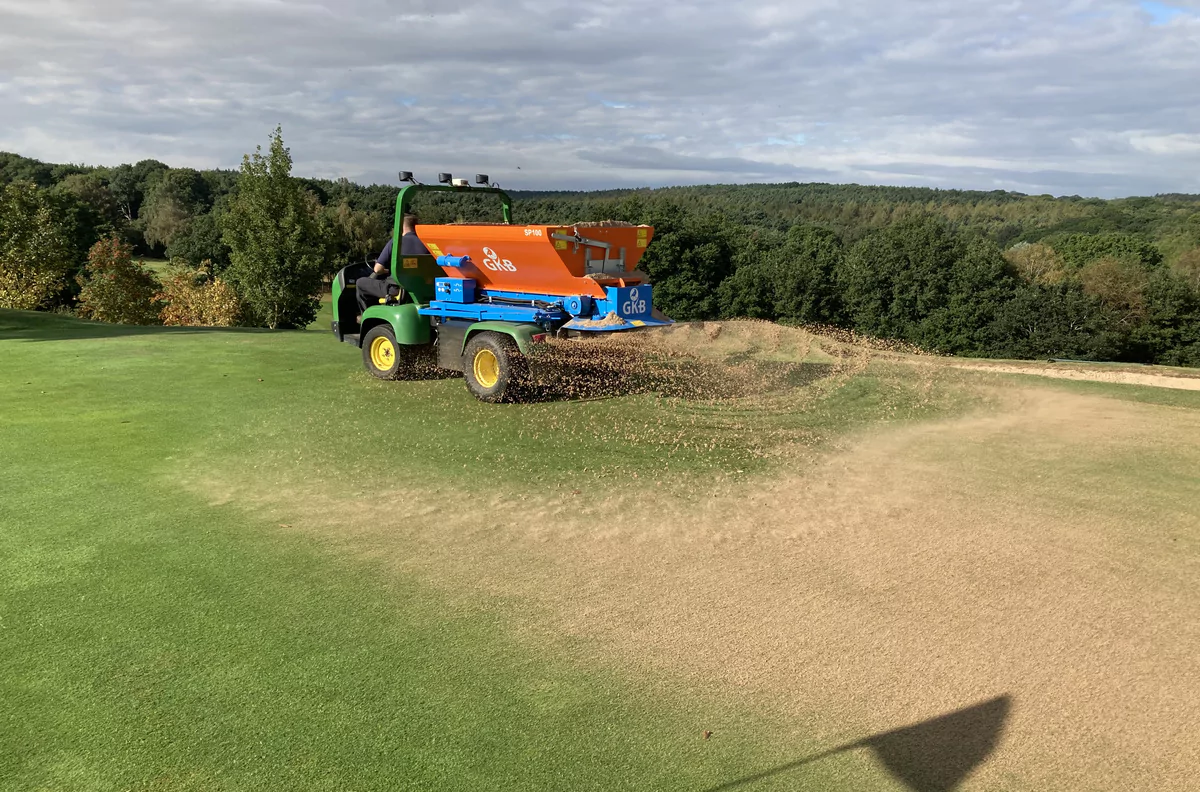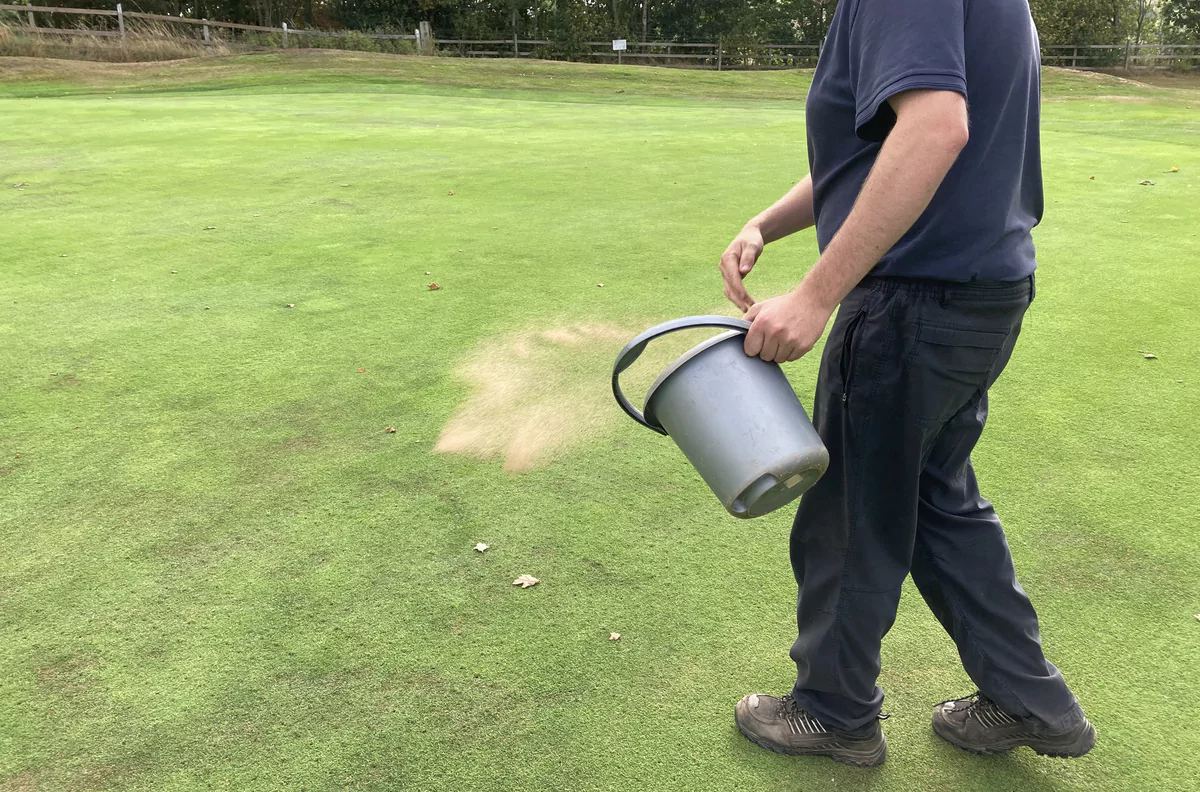Promoting quality through proactive seeding at Atherstone Golf Club
Originally designed in 1894, Atherstone is a forward-thinking golf club that has produced three Ryder Cup players in its history. But now, let's focus on the greenkeeping success of Atherstone.
 Germinal Amenity expert Alex Beesley met head greenkeeper Rob Lawley and the team at Atherstone Golf Club to discuss how proactive seeding has improved the playability, sustainability and surface quality of the course.
Germinal Amenity expert Alex Beesley met head greenkeeper Rob Lawley and the team at Atherstone Golf Club to discuss how proactive seeding has improved the playability, sustainability and surface quality of the course.
Asked why they opted for autumn overseeding, Rob explained. "Overseeding allows us to focus on strengthening areas which have shown previous weaknesses and helps with any end-of-season repairs before the soil temperature drops off in winter."
This is not the only time Atherstone GC will overseed, however. Through proactive seeding, Rob explained they like to take every opportunity to get seed down into the ground.
Annual overseeding schedule
When discussing Atherstone's overseeding strategy, Rob laid it out for Alex. "In spring, we lightly overseed. Throughout winter, we undertake cold seeding for any wear and tear for early-season repair. We pitch mark and hand seed imperfections throughout the spring, summer and autumn."
Rob aims to overseed twice a year, with spring and the end of the summer being the target seasons. However, Rob explains that any work which breaks the greens' surface presents opportunities to get more seed in the ground. 
Increasing overseeding to mitigate climate stresses
Speaking to Alex, Rob explained they have increased the frequency at which they annually overseed in the last two years.
"We see it as an important move in current and future management of the putting surfaces. Proactive seeding will produce greens that can handle the stresses of the current climate, including hot and dry spells or wet and cold snaps."
Rob added that mitigating climate challenges is not the only reason they have increased their overseeding.
"Improving disease resistance and reducing the nutritional requirements are also things we're looking for."
Ensuring seed-to-soil contact with overseeding methods
Rob discussed Atherstone's preferred golf course overseeding methods with Alex.
"We've tried all sorts: generally, we do a pencil tine, sprinkle some seed, and lightly topdress followed by a roll and water if required."
By ensuring good seed-to-soil contact, the team has seen positive results.  Atherstone also uses manual seed slotting tools and their AccuSeeder to oversee. Homemade spikers are also used to open the surface before a mix of seed and topdressing can be put down.
Atherstone also uses manual seed slotting tools and their AccuSeeder to oversee. Homemade spikers are also used to open the surface before a mix of seed and topdressing can be put down.
ForeFront Greens providing the best of both worlds
Having previously used the 100% browntop bentgrasses of AberMajesty, Rob switched to ForeFront Greens last year.
"It gives us the traditional browntops with the added creeping bent. It seems to have suited our course really well as we have some greens very exposed to the elements and some tucked away in shady corners of the course", Rob revealed.
Proactively seeding for long term success
Disease pressure and the reduction of inputs can have a considerable impact on the quality of a golf course. Atherstone GC recognised this and has taken action to mitigate the impact.
"Long term, we see proactive seeding as a vital practice to help with disease pressure and general maintenance with a reduction of inputs. With industry changes of the last decade, we only see it continuing to a more sustainable future with more measures and controls on products and their uses."
To learn more about proactive seeding and which mixtures are suitable for your course, contact one of our Germinal grass experts here.


